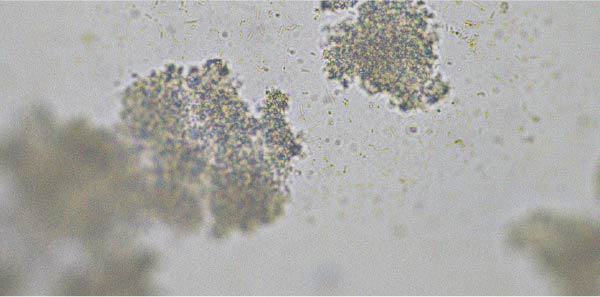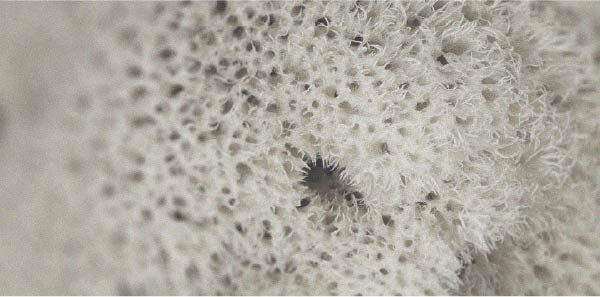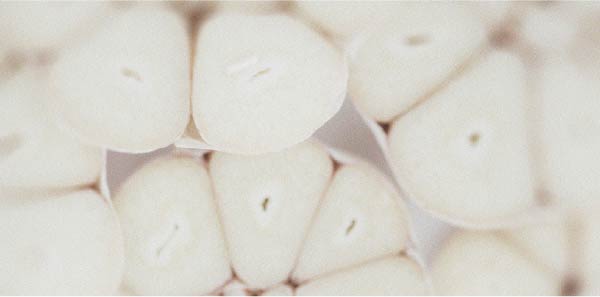Could You Have Helicobacter Pylori?
Have you heard of the bacteria Helicobacter pylori? Perhaps not, as its awareness is not widespread, despite it being believed to touch around 50% of the Occidental population.

Where Does H. Pylori Grow?
For a long time, it was thought that no bacteria could survive the acidity of the stomach. However, in 1982, two Australian scientists were surprised to discover that the Helicobacter pylori bacteria could withstand the effects of gastric juices.
This bacteria forms part of the Helicobacter genus because of its external, corkscrew-like, helicoidal structure. The term pylori refers to the pylorus, where the stomach meets the small intestine.
How Does Helicobacter Pylori Survive in the Stomach?
The scientists who discovered H. pylori in the human stomach were awarded the Nobel prize for physiology and medicine in 2005. Following this major advance, further research has attempted to expand our understanding of the mechanism responsible for its development.
Its very specific structure makes it able to penetrate the stomach's mucus and mucosa. Once there, H. pylori seems to produce significant amounts of an enzyme called urease, which enables it to survive in the gastric mucosa.
What May be the Consequences of H. Pylori?
In addition to secreting urease, H. pylori might produce other substances which may not be beneficial to the stomach.
Who is Impacted by H. Pylori?
It is estimated that about half of the population may have this bacteria. Though it is more likely to appear during childhood, Helicobacter pylori may remain undiscovered for years. A significant number of people thus may have it without realizing it.
How Can You Know if You Have Helicobacter Pylori?
It can be difficult to find out if you have H. pylori, but some effects may manifest, such as mild stomach discomfort, reduction of appetite, potential bloating, etc.
Are There Natural Ways to Deal With H. Pylori?
It seems that licorice extract may help with some digestive challenges. The natural mastic gum, which seems to have been used for thousands of years, may have been shown in studies to potentially help with H. pylori
At SuperSmart, you can try our H. Pylori Formula supplement.
Alongside a balanced diet and healthy lifestyle, certain nutritional supplements may help maintain normal digestion. For example, Psyllium Husk, which might contain an important amount of soluble fiber, as well as probiotics, microorganisms, apparently recognized for their possible beneficial effects on the digestive system.
Keywords
2 Days
great products and prices
great products and prices
Marie
8 Days
Easy to navigate site
Easy to navigate site, had what I was searching for, good price. easy order-check out
James Tucker
14 Days
My skin is clearing up nicely!
Pretty good for my skin so far.
Christian
16 Days
The new packaging is excellent
The new packaging is excellent - finally! No more squashed boxes and torn envelopes.
GORAN
17 Days
Great Product
Great Product
Larry Garrett
21 Days
Quick shipping
Quick shipping; good price. No issues!
Mary McCarty
23 Days
Thr product is very good and is helping…
Thr product is very good and is helping me on my health. Then is always on time
LUGO Luz
25 Days
Buying was fine
Buying was fine. I had problems with the website not recognizing my login info, and had to call to get it fixed. Other than that, everything was good.
David S. Clark
26 Days
Your super maca and super ginseng are…phenomenal
Your super maca and super ginseng are phenomenal supplements that compliment each other when taking them together. Fantastic feeling of well-being and lots of mid day energy without the crash.
Keith Mason
28 Days
I have had amazing results with every…
I have had amazing results with every supplement I've purchased. I am extremely satisfied with this company
kirstin Torres
28 Days
Fine products
Fine products . They are on the leading edge of online supplements. The only issue -so far-is they sometime run out of subscription items.
Jason Argos
31 Days
The ordering process is very user…
The ordering process is very user friendly and the products always come in a timely manner.
CARTER Rhonda
32 Days
The price for Dr
The price for Dr. Pero's AC-11 is reasonable and in line with his views. (my former colleague). Keep it pure.
CAMPBELL Clayton
35 Days
Right on every time.
Right on every time.
Arthur Nicholas
38 Days
They are cheaper than everyone else and…
They are cheaper than everyone else and the shipping was fast. Great company.
Patricia Adams




